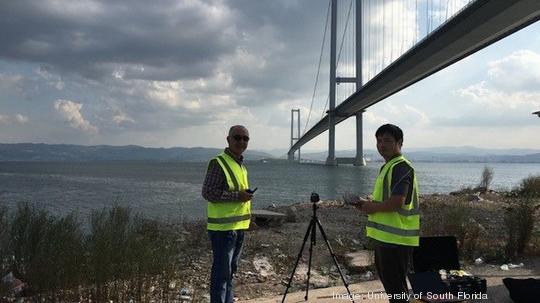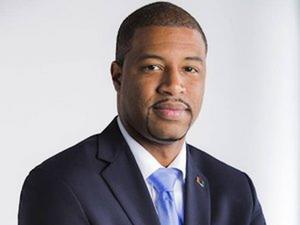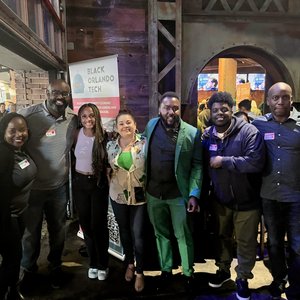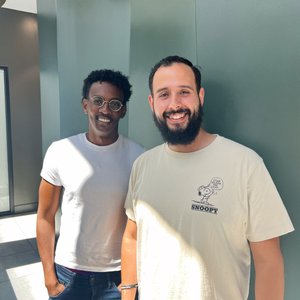
University of South Florida and University of Central Florida researchers are building a bridge — both literally and figuratively — with a transportation-technology-focused project.
The two schools have been friendly rivals both on the sports field and in the classroom. But when Rasim Guldiken arrived at USF labs 13 years ago, he immediately began reaching across the Interstate 4 corridor to build relationships.
"I wanted to work with [Dr. Necati Catbas] not just because he’s [also] Turkish, but we had similar interests," Guldiken said. "We had some proposals together, but in the U.S., research is driven by the money, and we were not able to fund our ventures. We were always good friends but not able to proceed."
More than a decade later, the duo has now found a project to leverage both their skills and funds. They have teamed up with Transtek International Group, hosted at the UCF Central Florida Research Park Business Incubator. The entities will use their technology to monitor and collect data about the health of U.S. bridges. The eventual goal is to get a vehicle system that allows detection while driving, to avoid significant lane closures.
"I can't say it’ll solve all these problems, but the technology can be used can detect bridge defects, and it can help us utilize the technology to effectively assess structures," Catbas said. "Traffic is already jammed, so if you close lanes for inspection and then construction ... I think [this technology] will help assess the problems in a much more efficient way, and also maybe reduce work zone safety issues."
The project will take an estimated $1.2 million for completion and has received funding through grants from the Florida High Tech Corridor and the U.S. Department of Transportation.
While Catbas and Guldiken represent UCF and USF, respectively, they are also employing students from both entities and Lakeland-based Florida Polytechnic University.
"This is broader than the research we’re conducting; we have graduates being trained and will be the next engineers," Guldiken said. "We have multiple students in this project, and I would not be surprised at all if they have their own company in a year or two. At the end of the day, this is serving the community and state."
Both researchers are hopeful for the overall project's outcome and believe it can serve as a standard for other entities to work across regional lines.
"Speaking of university professors, some might be competitive, but it's a collaboration; these problems are much bigger than one person," Catbas said. "If there is any competition, focus on making Florida as a whole a bit better in every aspect, from education to science, to engineering, to technology. These programs are so important to encourage companies to work with each other. We are very close — why don't you collaborate together?"
Sign up here for The Beat, Orlando Inno’s free newsletter. And be sure to follow us on LinkedIn, Facebook and Twitter.








